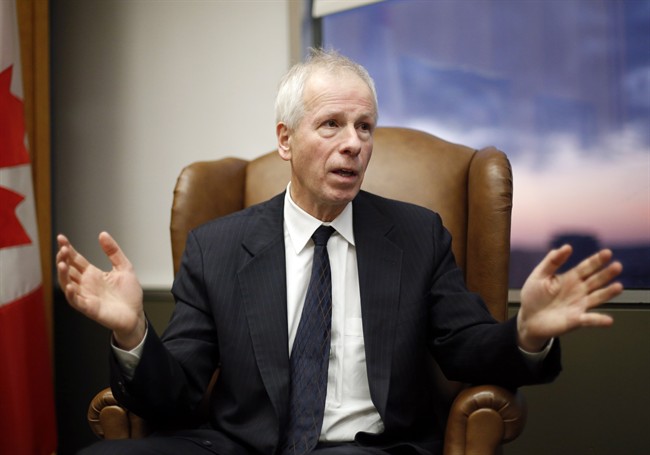OTTAWA – A Canadian tourist killed by Islamic extremists in Jordan. The assassination of the Russian ambassador to Turkey. The multiple killings of peaceful Berliners at a Christmas celebration.

All of this is linked by an “extremely bloody” ideology spouted by the Islamic State of Iraq and the Levant, says Foreign Affairs Minister Stephane Dion.
READ MORE: Islamic State claims responsibility for Jordan terror attack that killed Canadian tourist, 9 others
And it is about time Russia starts pulling its weight in fighting it, instead of pursuing its “bitter” victories in Syria, says Canada’s top diplomat.
During a year-end interview, Dion linked this week’s series of terror-related tragedies in Jordan, Turkey and Berlin to relentless recruiting efforts of ISIL.
READ MORE: Justin Trudeau declares opioid crisis a ‘federal health emergency’

“It’s always, everywhere, the same ideology — an ideology that convinces young people that if they kill others because they don’t share their beliefs, they will be heroes in this world and will go to heaven in the other world,” said Dion.
“This ideology is extremely bloody and we will need to find a way to de-radicalize these people to make sure no terrorist group is able to have a territorial tyranny anywhere as ISIL has in Iraq and Syria.”
Dion criticized Russia for its ongoing support of the regime of President Bashar Assad in Syria.
Dion also lamented the recent fall of Aleppo — from which convoys of shell-shocked civilians have departed.
READ MORE: Bana Alabed, Syrian girl with viral Twitter account, safely evacuated from Aleppo
Government forces, aided by Russia, crushed the anti-Assad opposition that was entrenched there.
“It must be very bitter,” he said, “if they call it a win. I would call it a big failure for human kind.”
Dion said he was encouraged by Monday’s unanimous approval of the UN Security Council to deploy international monitors to Aleppo, but he said it’s a development that should have occurred weeks ago.
He said Canada pushed for progress at the UN, but “the only ones who can make a difference are the Russians.”
READ MORE: U.S. sanctions 7 people, 8 companies over Russia actions in Ukraine
Dion said Canada regularly tells Russia to do more to fight ISIL in Syria instead of targeting anti-Assad rebels. It’s a message he has personally delivered to Russian Foreign Minister Sergey Lavrov.
And it is one that Canada’s ambassador to the UN, Marc-Andre Blanchard, delivers to his Russian counterpart in New York on a daily basis, Dion said.
Since October, Canada has been pushing the UN General Assembly to take steps to stop the ongoing civil war in Syria, which has displaced millions and killed hundreds of thousands.
Dion acknowledged the inaction of the Security Council. But he said Canada had to do what it could to pursue action on Syria in the 193-member General Assembly.
Canada recently gathered the support of more than 70 countries to press the General Assembly to address the Syrian crisis.
Dion said the despite the ongoing carnage he sees every day, he hasn’t lost faith in the ability of diplomacy to make the world more peaceful.
He said things were worse in the 1970s when he was a university student.
Totalitarianism was rampant in east Europe and most of Asia, while Africa was ruled mostly by military regimes.
“The United States was paralyzed by the Watergate scandal. That was the ’70s,” he said.
That was followed by the “strongest wave of democracy in the history of humanity,” he said.
“The difficulties that remain are huge and big but we should never be discouraged about the world.”



Comments